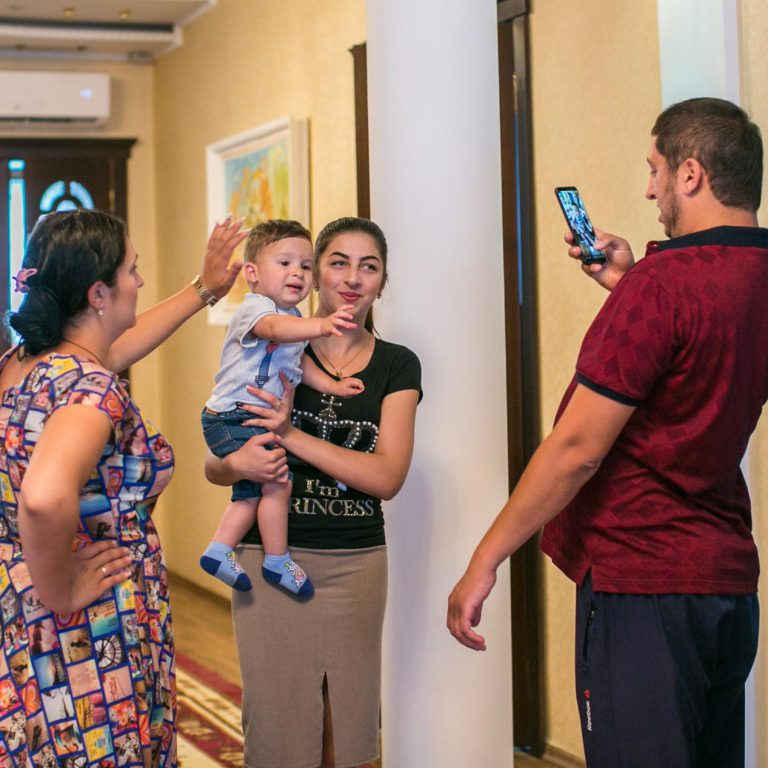Since the Roma appeared in Zolotonosha, the locals have changed their attitude towards the Roma like the Roma changed their way of life. It happened mostly because of the local Romany activists, who established non-governmental organizations (NGOs) and even a special center, that is the only one in Ukraine – “Dialogue between Generations”. Here Romany people can get medical assistance, have a rest, do laundry and take a shower.
Romany people attend the same schools, churches, shops and markets as the other locals. They are active participants of the city and regional events, yet remain not fully integrated into the society.
How the Roma appeared in Zolotonosha
The Roma settled in Zolotonosha in the 1970s after the order forbidding the nomadism has been issued (1956). The founder of the first Romany community “Ame Roma”, Volodymyr Bambula, tells that there were no representatives of this ethnicity in the city before the war:
— Maybe one or two families, but my people don’t know, history tells nothing about it. I have asked an old Gipsy woman, I was young, but she was in old age. I asked: “Why the Gipsies haven’t been living in Zolotonosha before?”, and she answered: “Volodko, the Gipsies were treated so badly in Zolotonosha before the war, treated – worse than dogs. Even the Gipsy’s dog couldn’t run on the streets. The people hated Gipsies”.

Nowadays the attitude has changed, but in order to get the positive image, they needed to work for years. Firstly the residents of Zolotonosha were afraid when the Roma moved in nearby, the Roma could not get the employment. But later they understood, that such neighbours are even helpful sometimes:
— Once I was the first one to get the house there, and the neighbours were scared: “Oh, the Roma are moving in. Poor us, they will steal everything”. But this man had a state job and a high position, so he was bringing everything to this house. It was his storage place before. And when he started to get robbed in the other places, but here everything was all right, even the house was uninhabited, he came and told: “Volodia, I thought since you have moved in that I would lose everything, and everything would disappear, but it turned out opposite. I am losing everywhere, but here.”

The Roma of Zolotonosha are mostly traders and private entrepreneurs. Volodymyr (father) also started from trading. He had his own pig farm, he thought he could make good money in this business, but soon there were few such entrepreneurs. So the man closed his business and began to produce and sell the pictures:
— We made a nice picture and took it to the market. We got the patents and traveled all over Ukraine. The thousands of Gipsies were selling the pictures. We made good money on it, one had built a house, the other one had taught his kids to do the same, to do the honest, right things.
Lately, many Roma from Zolotonosha started to buy the chickens from the poultry farms and sell them in the villages. Some left for Lviv and Kaniv to work on the plants and farms, the others are entrepreneurs, traders on the market, waiters.
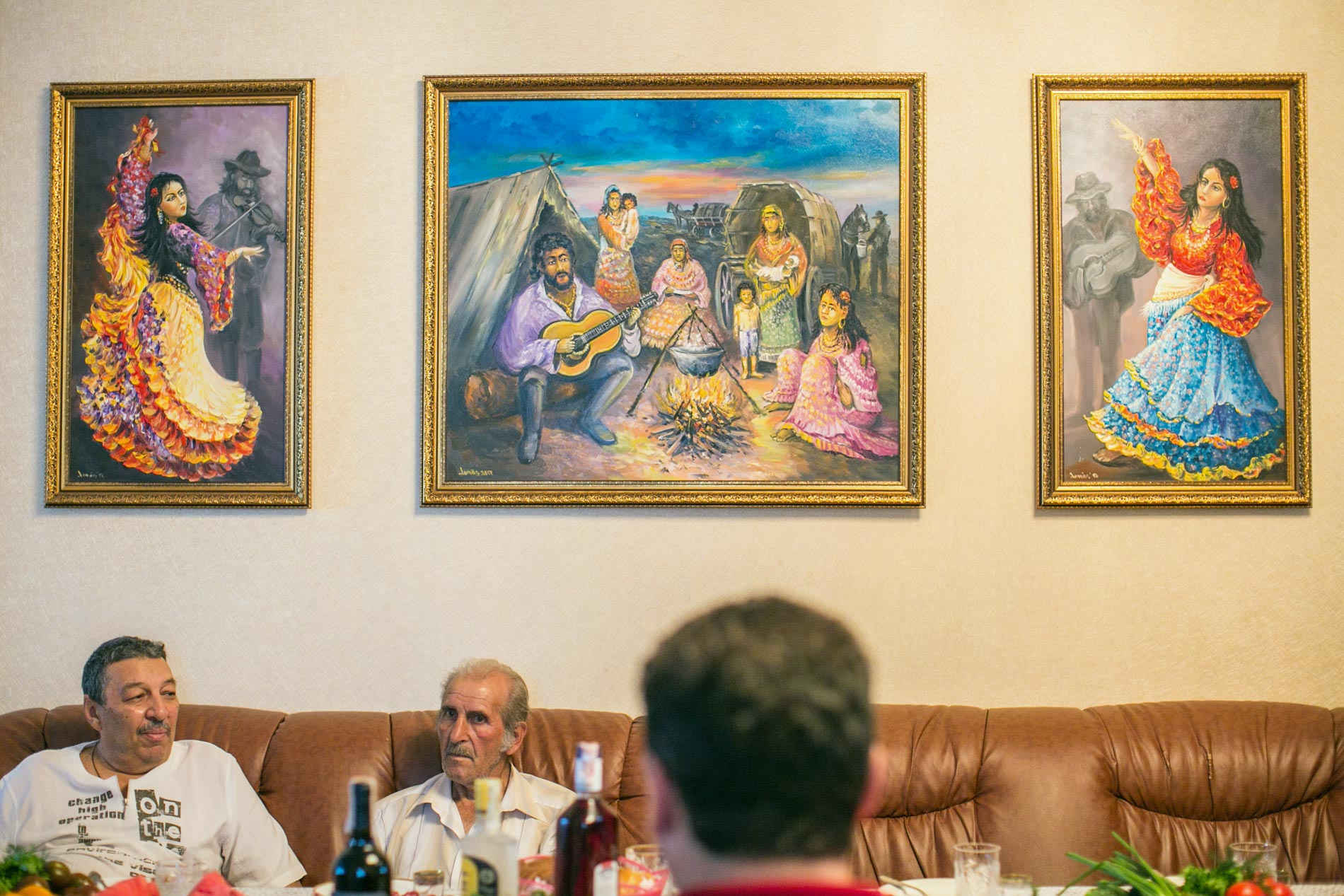
NGOs of the Roma
In Zolotonosha with around 30000 inhabitants, there are 2000 Roma. They have established two NGOs – Cherkasy regional non-governmental organization “Romani Rota” and Zolotonosha Gipsy commune “Ame Roma”. Also, it has been over a year since the Romany center “Dialogue between Generations”, which is the only one in Ukraine, works. However, not only the Roma can visit it.
For the last 17 years Volodymyr Bambula and his son, also Volodymyr, are officially dealing with the activities related to the socialization, education and a legal support.
In 2001 Volodymyr Bambula (father) had registered the Gipsy commune “Ame Roma”. Now both “Ame Roma” and Cherkasy regional non-governmental organization “Romani Rota”, which are located in the same office, are lead by Volodymyr’s son.
The man confides that he has established the NGO with a primary purpose to help each other. Back then Volodymyr could not imagine what the organization would do:
— I even didn’t understand that there are organizations, that one can establish it, organize themselves and act within the legal framework. We did it just because we have often the cases when a person gets sick and needs some support. So I had decided to gather everyone, well, not everyone, but a majority of the Roma of Zolotonosha; back then there were fewer of us here. Let’s make a community. We hadn’t thought to register it. I would tell what we wanted – we wanted to create a fund for mutual support, the one that would operate, so people could help each other.

The representatives of Romany newspaper “Romani Yag”, which is the only one in Ukraine, were those who offered to register the NGO to Volodymyr. Firstly they communicated by mail, later they went to the city council and in 2001 registered the NGO officially.
Three years later another organization “Romani Rota” emerged in a city. As a result of establishing the NGOs, the Romany community joined few programmes related to the education and the social protection of the vulnerable social groups.
The Roma who were victims of the Holocaust received the single payment, some got the minimum pension. Volodymyr (son) tries to look constantly for grants, to attend conferences and strives for the better life for the Roma.
He says NGO is actively cooperating with the city council. Romany bands participate in the city and regional festivals, also take part in the life of the city community:
— The authorities always support us, because if there is a controlling organization, some community is there, if they need to solve something they always contact us and we try to resolve that issue. Or, if we need a support from the city. We act as mediators in solving the issues, it turns out to be more effective that way.
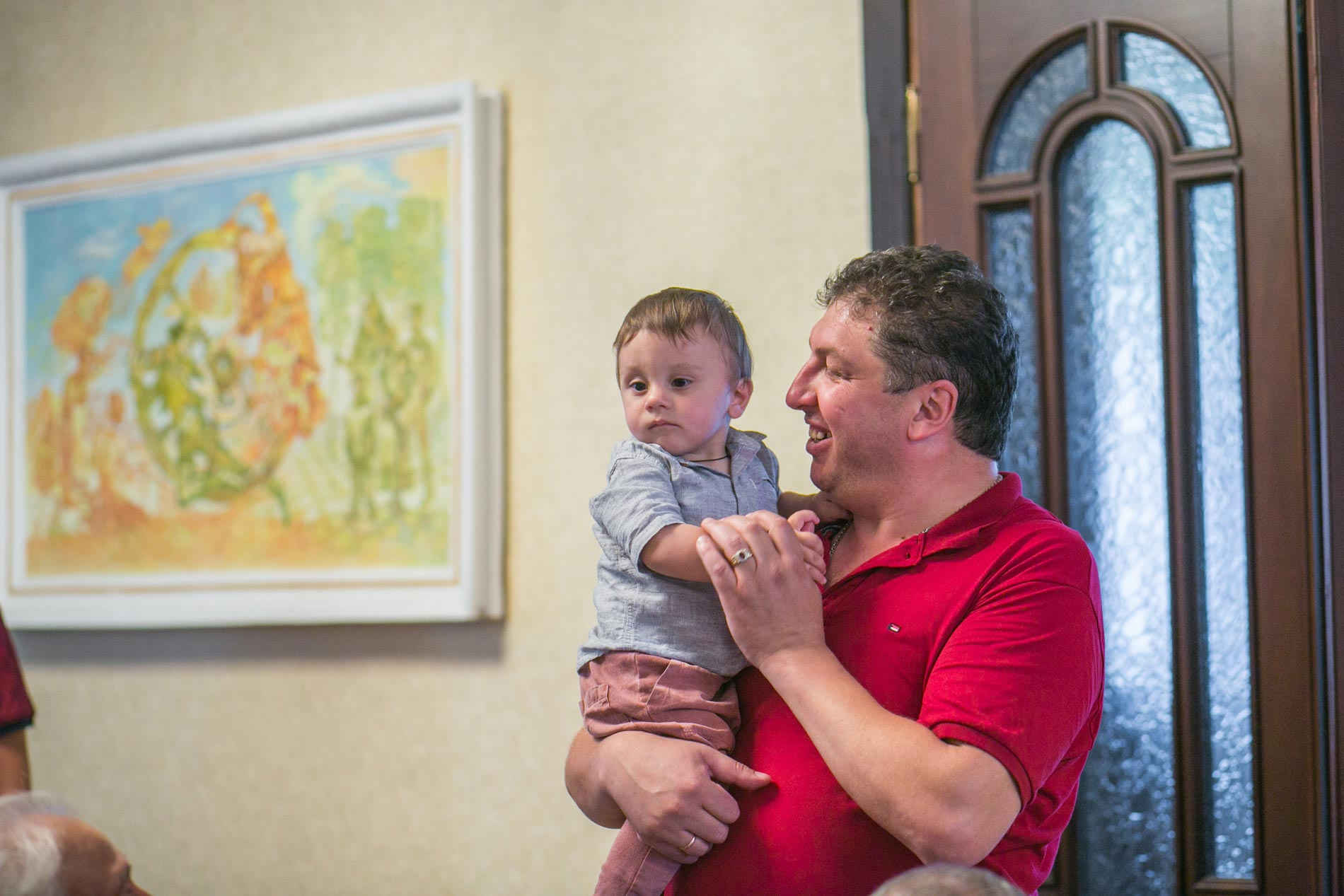
Centre “Dialogue between Generations”
In the beginning of this year the official opening of the Romany social centre “Dialogue between Generations” with a financial support of the German fund “Remembrance, Responsibility and Future“ (EVZ) took place in Zolotonosha.
The Centre was established in February 2017 already, since then the reparation, installing the furniture and communications had been going on there. However, the building was severely damaged by the storm last summer, and all the works started again.
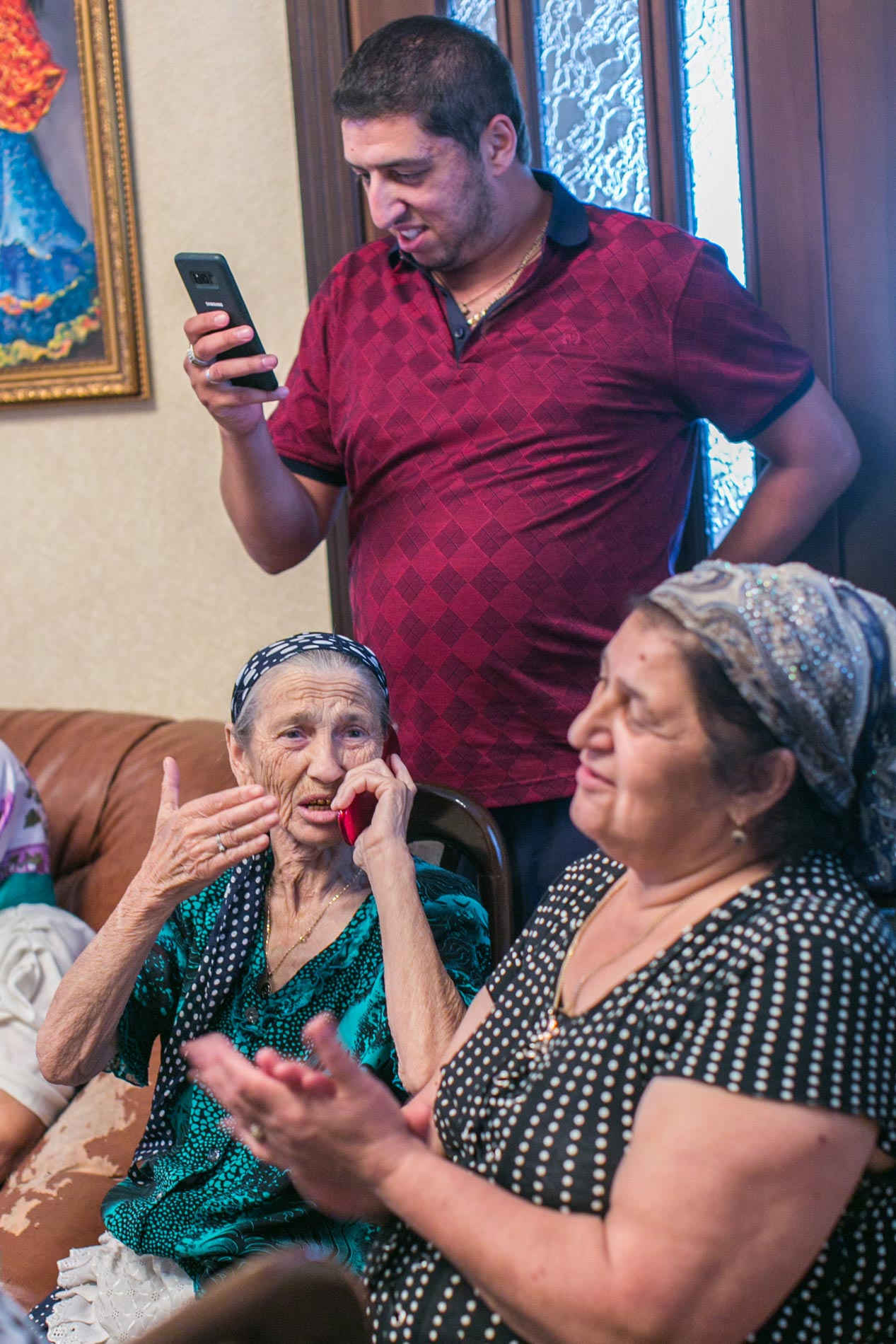
Now there are all the necessary furniture, shower, washing machine, equipped kitchen, air condition, TV and internet. Also, there is a separate room where the family doctor accepts patients on the particular days:
— The doctor prescribes a treatment, we help them to purchase the medicines, they can also have a medical examination in our centre. They can shower there, have tea, watch TV and get any other information.
The older Roma gather in the centre “Dialogue between the Generations”. Here they communicate with each other and the younger ones, tell about traditions, culture, share the memories and simply have a rest.
Bookkeepers and lawyers work in the office, there is also a social sewing workshop created mostly to help the Roma who are “Kids of the War” (those who were underage by the end of the Second World War on 02.09.1945 – tr.). Nowadays not only Romany people but other city residents, who don’t have a lot of money, can fix their clothing here:
— If some are coming again, they can fix their clothes with 50% discount and that money go to the same place, this workshop, to buy threads and fabric. This is how we live and work.
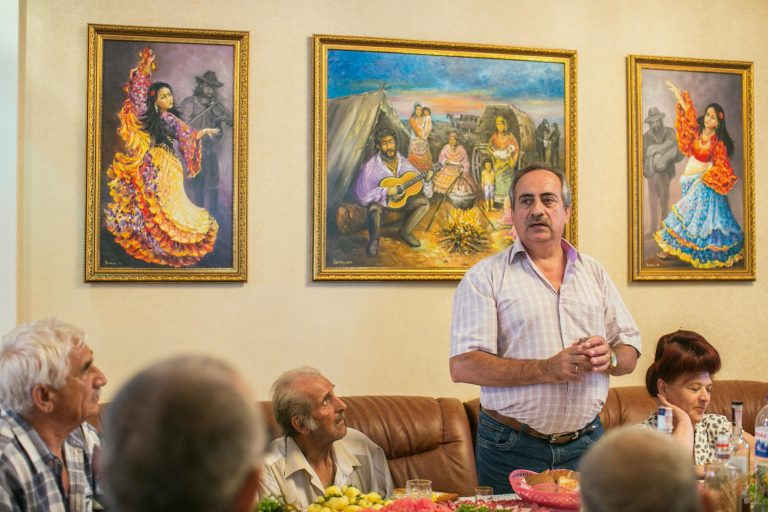
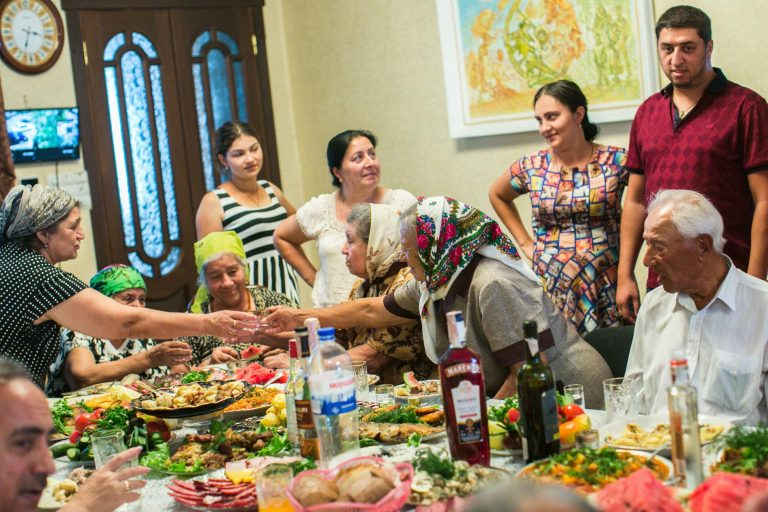
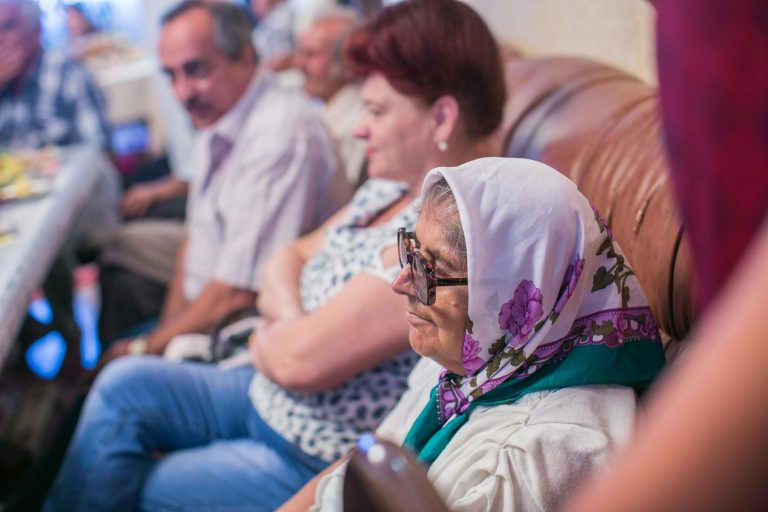
slideshow
Sometimes Volodymyr hosts the meetings of the older generation of the Roma at his place. The guests from Pereiaslav-Khmelnytskyi come there too. The communication takes place at the big table with music, singing and even dancing:
— They understand that they are still needed. Here are the teachers, school headmasters, simple workers, but no one who is not involved in some profession.
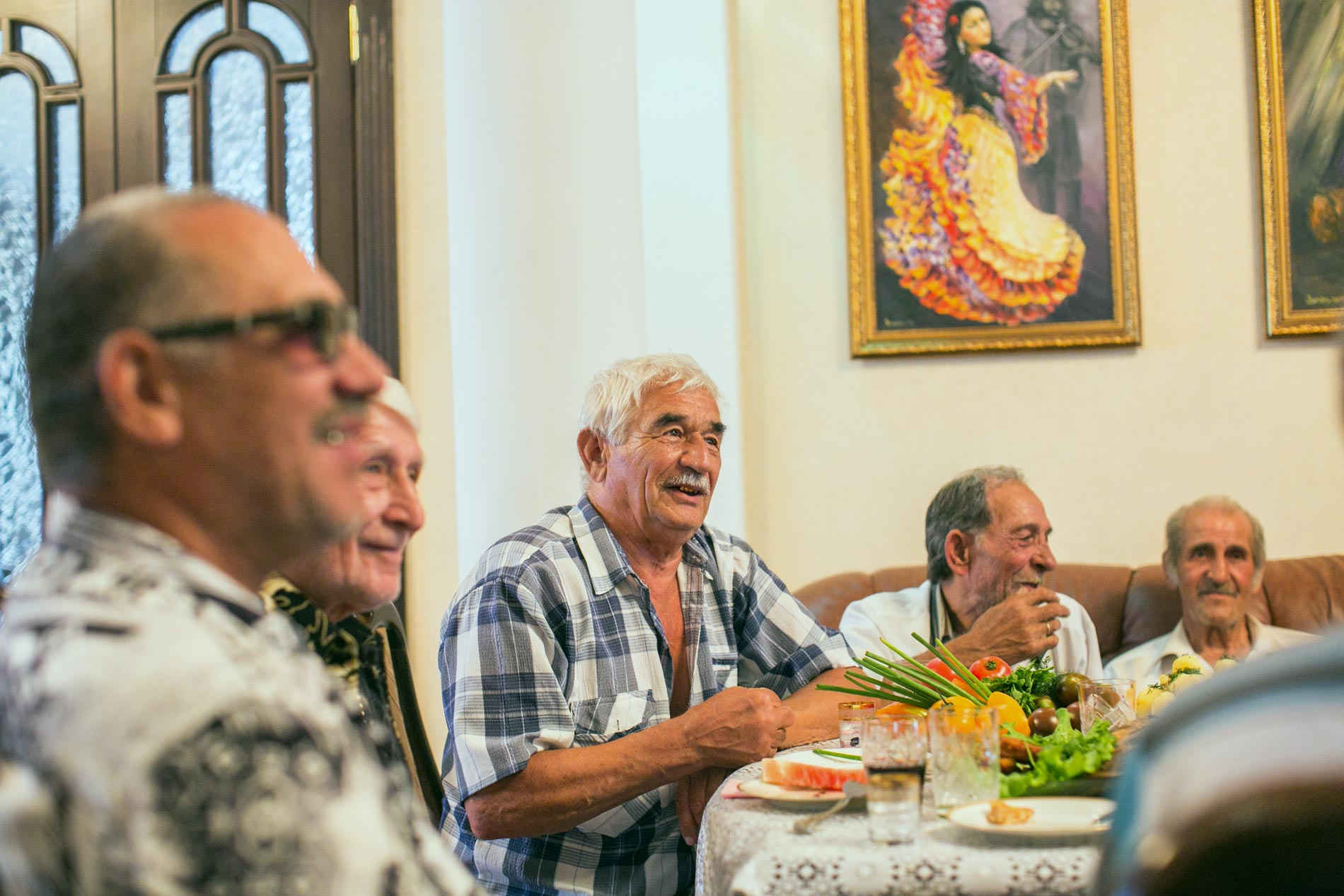
About attitude to the Roma in Zolotonosha
Both father and son tell that the attitude towards the Roma in a city is quite ambiguous. They have a lot of friends among the city residents, visit each other. There are mixed families, kids go to an ordinary school, integrate into the city’s life. However, often something unpleasant occurs. In particular, Volodymyr (son) tells, they often need to protect their rights in a court, to monitor the local media and to follow the news about Roma, mostly negative, focusing on the crime:
— It’s easy to hear the good things, but the bad things are louder. We shot many movies about the Roma, my father has written two books, but they do not write about it.
There are no nomadic Roma in Zolotonosha, but there are forcedly displaced people living chaotically and sometimes without proper hygiene conditions. Volodymyr (father) tells that employers don’t want to hire them or rent them a room because they don’t have documents and are poorly integrated into the local environment.
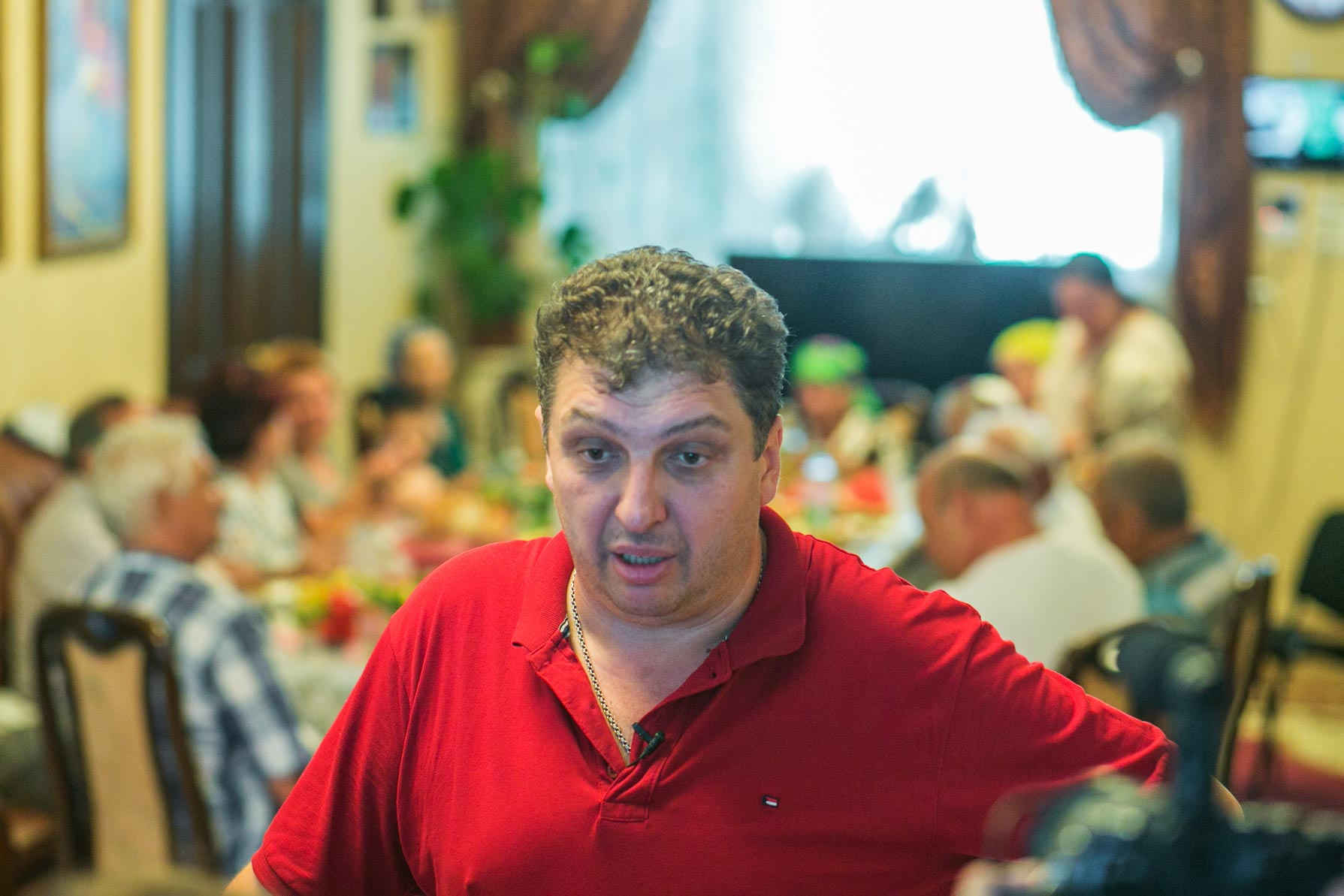
Besides, there are local Roma who are not socially protected. Volodymyr (son) tells they try to find the humanitarian aid abroad through the NGO and look for all possible ways to change this situation.
Local Roma also needed to go through the assimilation. The father of Volodymyr recalls that before many Roma worked on the construction, but in order to get a job, they needed to speak Ukrainian. As a result of such requirement young Roma of Zolotonosha speak Ukrainian mostly and some may not even know Romani:
— The youth doesn’t know their language, the older know few words. Before Gipsy men were making the roofs on the houses, so when someone comes, a dark-haired Gipsy, and doesn’t speak the language, so they need to learn Ukrainian. They got used to it and started to learn.
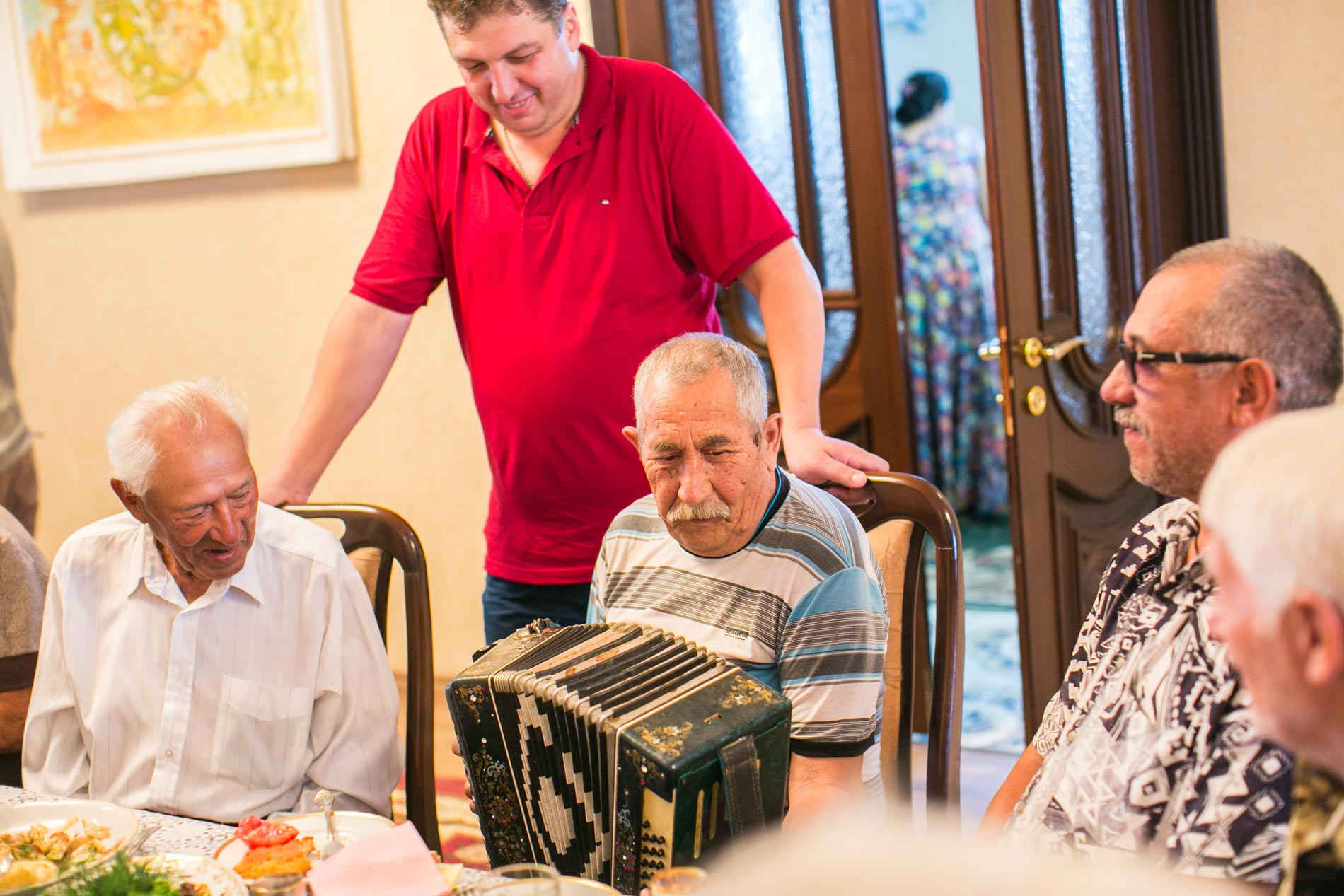
The Bambulas are respected by the locals nowadays, but there are still those who despise all the Roma:
— Now, you know, we have a lot of friends in Zolotonosha. When I go to the market, I go to see my friends. 99% are very good and decent people in Zolotonosha, 1% is a youth who grew up and have no clue about the politics or life, what is life, why do we live in this world. They don’t understand that the time will come when they will die, we will die, and once we will be there in front of God answering for our actions. I am not guilty just because I came to this world as a Gipsy.
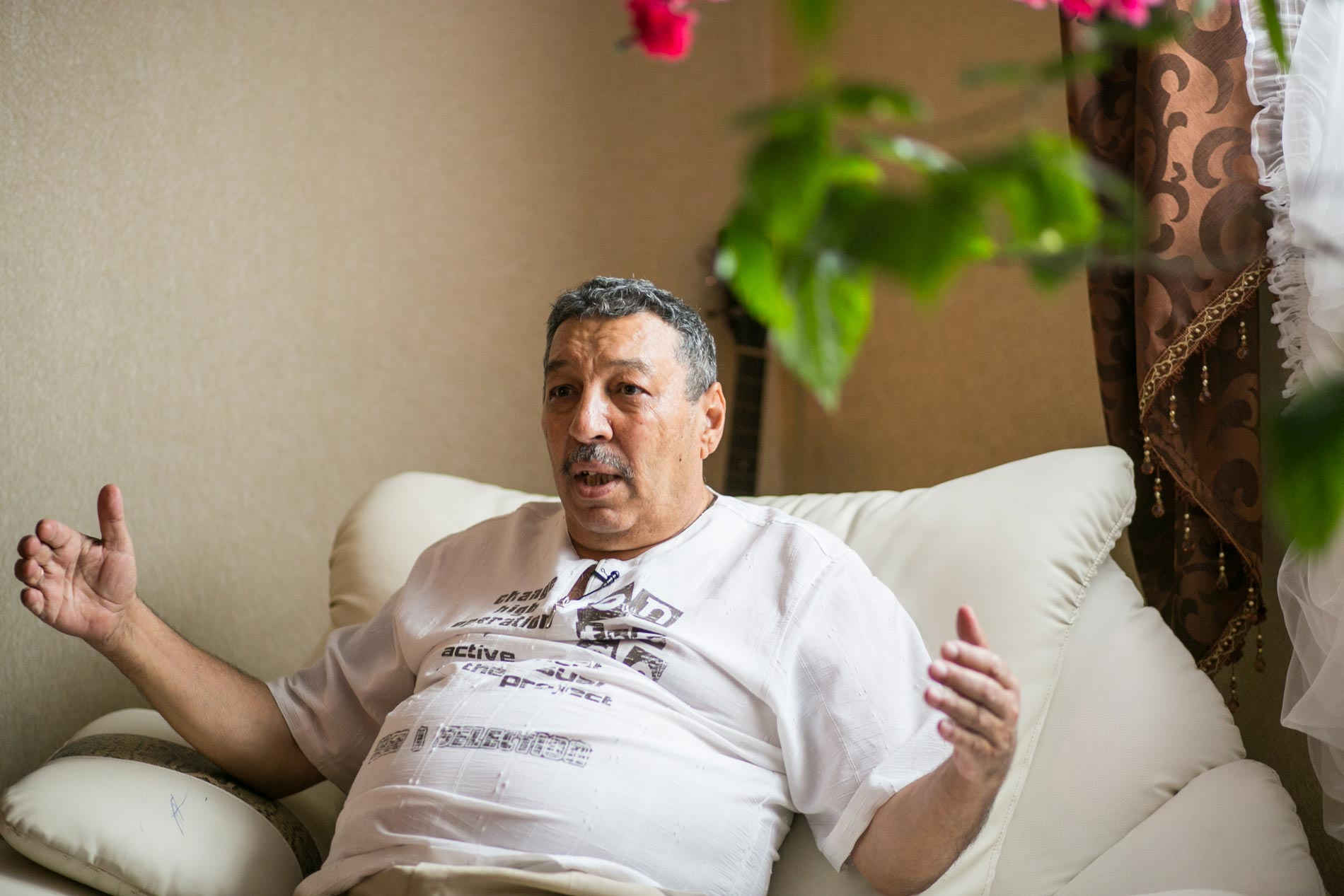
Books and research
Volodymyr (father) besides creating the first Romany organization in the city, is an author of two books: “Gipsy Destiny – Wind in a Field”, and “Kinship Children of the World”. They are based on the real historical events, collected and told stories of Roma from 1930s till today. A big part of the books is about the periods of the Famine and Holocaust, where and how Roma went through this difficult time. The man researched the way of Servitka Roma because he himself belongs to this ethnic group of Roma (read about Servitka Roma in a story ”The Roma of Vinnytsia”). The author recalls his childhood years when he was living in a village:
— So I walked, a kid, through the village, the huge village…And I met women, who looked on me with their frightened unfriendly eyes, even I was a kid, a schoolkid, I was a class president, a school authority. I never walked without a book – wherever I went I had books, a fiction with me. And later I wrote a book myself.
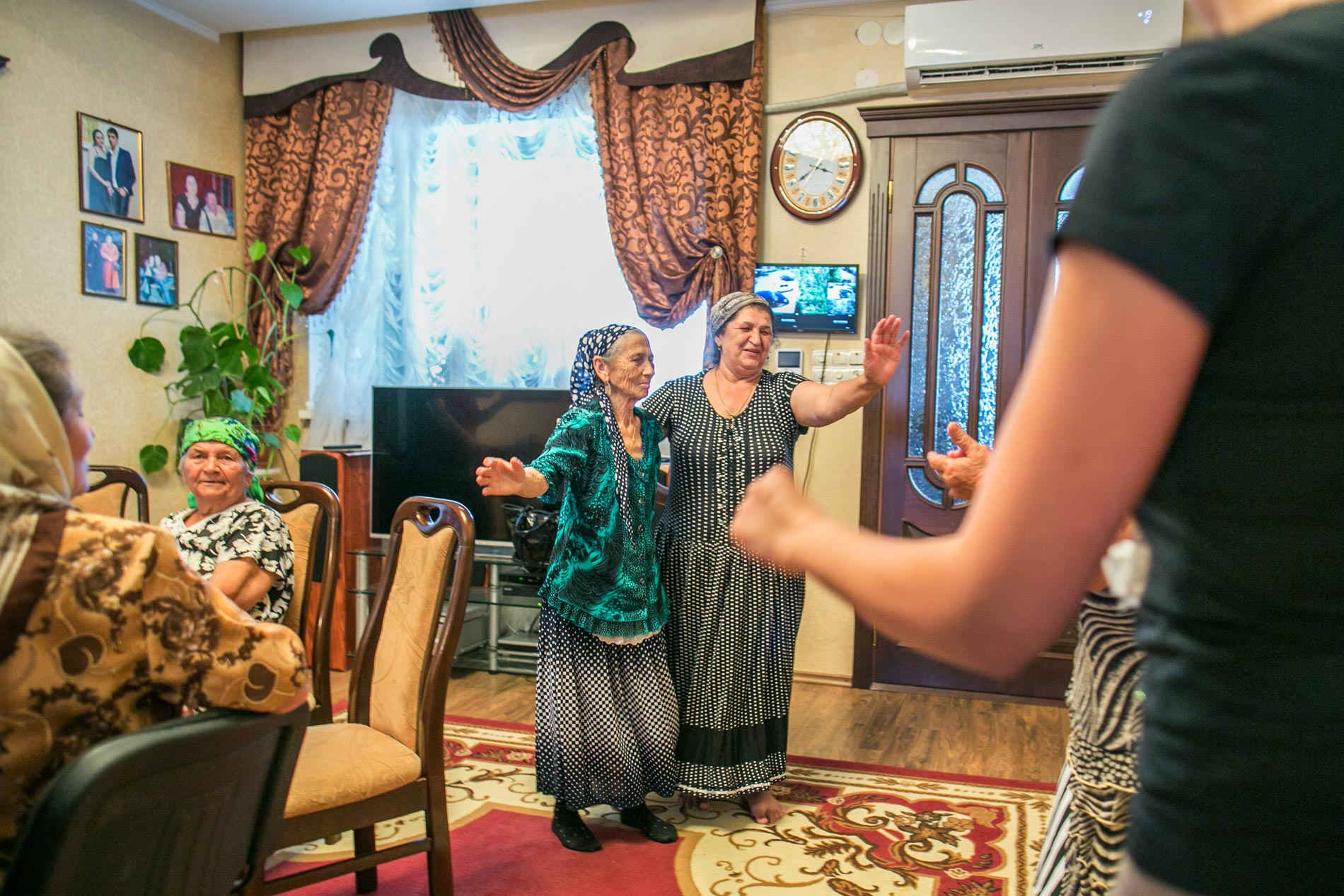
In his books, Volodymyr describes Roma, their destinies. It is where the name of one of the books originates:
— Why do I call it “Gipsy Destiny – Wind in a Field”? Because it is so unpredictable. The second book is called “Kinship Children of the World”. I think those are the Gipsies. Every country has its people: Ukrainians have Ukraine, Russians – Russia, Americans – America, Germans – Germany, Japanese have Japan. Every nation has its country. The country is a mother, but when a Gipsy, who doesn’t have a motherland, lives in this country he is like a kinship kid.
The books of Volodymyr Bambula are among the few that were published in Ukrainian because the majority was written in Russian. The readers and critics from the Romany community confirm that the stories are written skillfully and truthfully.
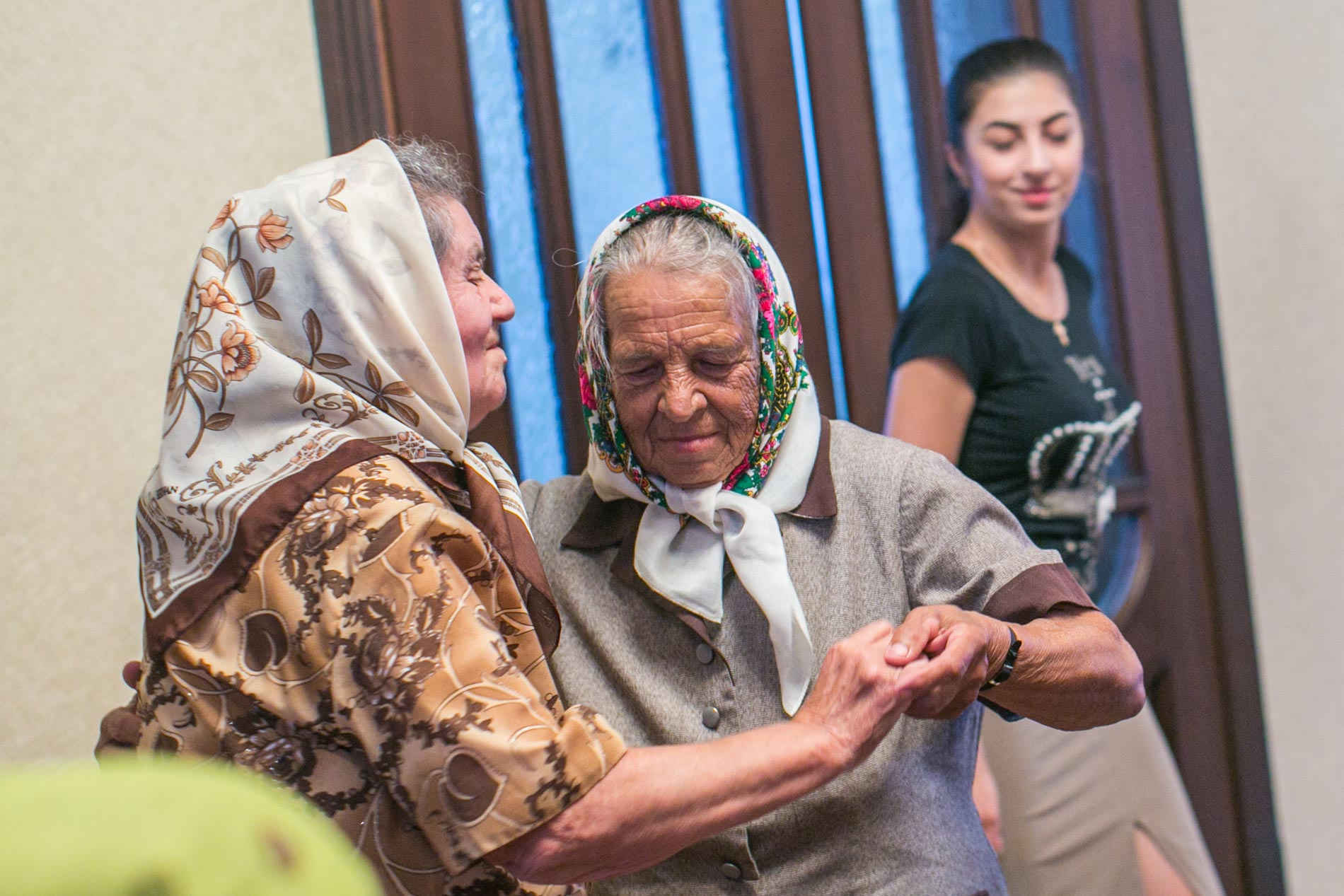
It’s been a while since the Roma are not called Gipsies officially, but Volodymyr still uses this name in his texts. He tells that the first official meeting of the Romany people was in 1971 in Great Britain, but before that, they were named differently in the different parts of the world:
— For example, in Ukraine, and in Russia we were called “Tsyhany”, in Mid-Asia – “Liuli”, in India – “Dom”, in England – “Gipsy”. Every country called us differently. And on this meeting, it was approved first to call the Gipsies with a single term – “Roma”(read also our story “The Roma of Pavlohrad”).
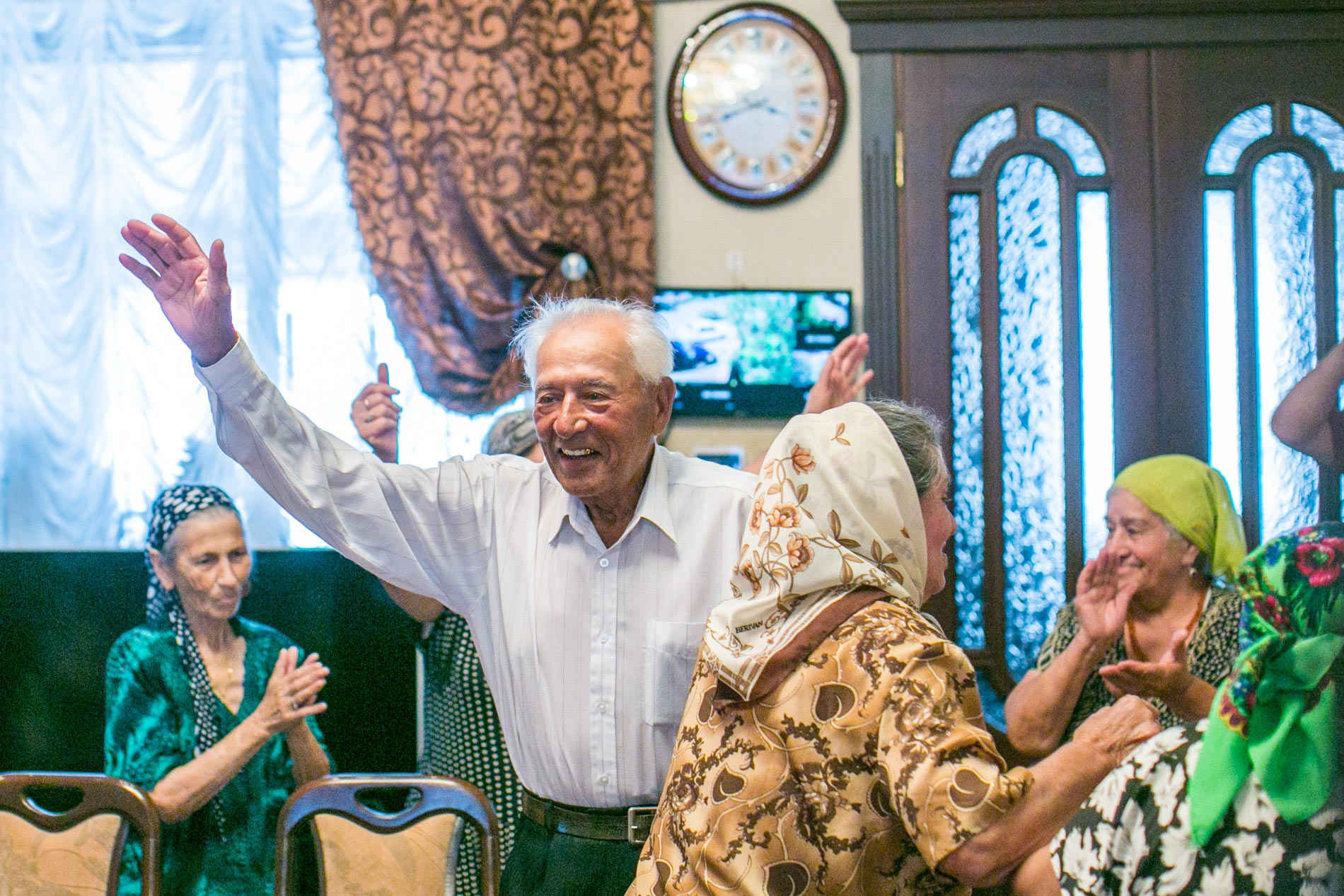
Roma are free people
There are many stereotypes about the Roma, especially those related to the nomadism. Nowadays it is not a common phenomenon, but every family has someone who experienced this period at least as a kid. Volodymyr (father) tells a parable about why the Roma live everywhere:
— There is this parable: in Ukraine, they say when the God was giving lands to people, everyone got something, but the Ukrainians were somewhere else, so they didn’t come in time. When they’d come, it was too late. They thought: “We were late, but we need it. Help us, God”. So, the God told: “I kept the best lands for myself, this piece of land – take it, it is Ukraine”. It is like this indeed, there is everything here, just take care of it properly. But the Roma were late even more, you know, came to the God: “So we are also here, give us too. We were running around, overslept…”. The God saw that nothing is left and told: “I give you a whole world. Live everywhere”. So, we, like this, live all over the world.
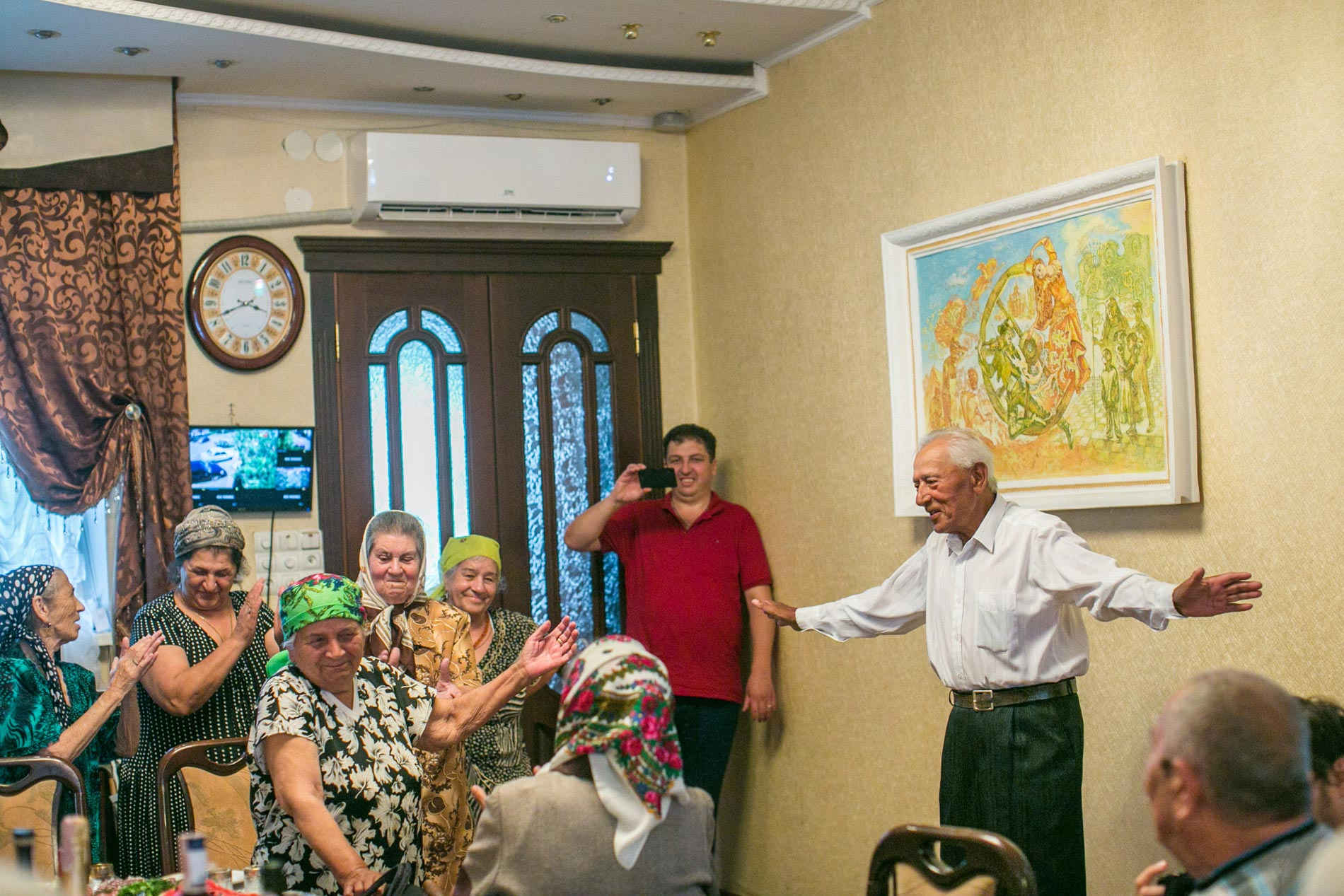
According to Volodymyr, some Roma continue nomadic life – some in a search of different life, some leave for few days with tents for some romance and the aim to remember the roots:
— The Roma are free people who like to move. They can not stay in the same place, they like romance, let’s say, all the time looking not even for a better life, but just a different one. You see, it is all the time like this with spontaneous settlements. It is only in Zakarpattia they don’t leave to look for something better. They would rather stay and improve the local social conditions (read also our story “Roma of Zakarpattia”).
Volodymyr believes that providing jobs and ensuring a minimal subsistence level can help to stop the nomadic life of Roma people:
— People do not choose to live on a landfill or to live with children in the forest without any conditions because of big happiness. They are trying to survive, even not to live, but to survive at least. I think if they were provided with employment, a subsistence minimum, so they could support their family, they would not go anywhere.
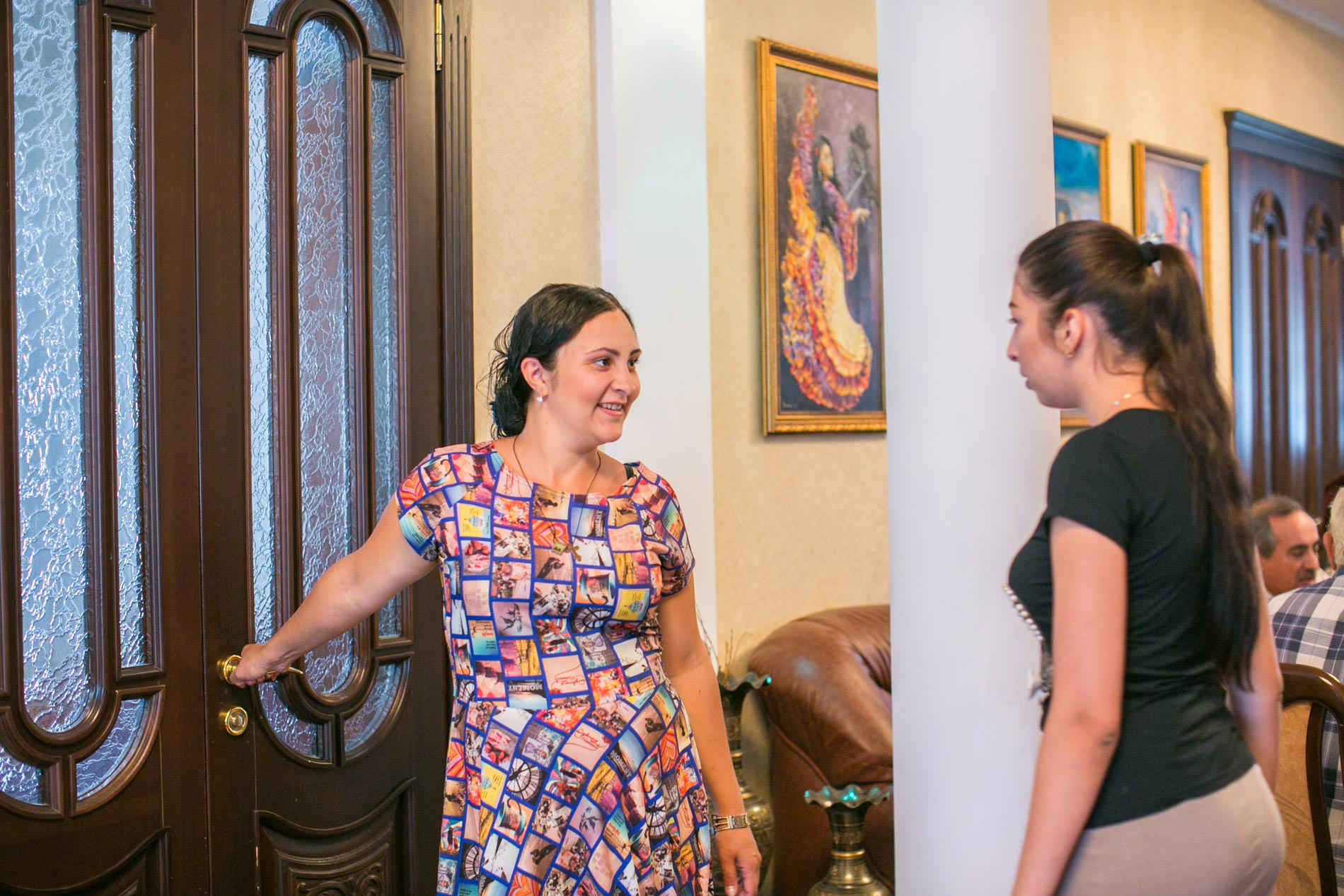
Education and socialization
All Romany children in Zolotonosha go to school. On the basis of the NGO “Romani Rota” there are courses for preschoolers. However, as in many other Romany communities, there is a problem: not all children graduate from school and go to higher education institutions. Despite the fact that today there are programs aimed at teaching Romany children, they are choosing a different path.
Volodymyr (son) says that children simply do not see the prospect of the education, because after studying 5-6 years at the university they work as sellers on the market. The Roma still face some distrust, this is why they choose mostly physical work:
— I don’t know a single Roma in Cherkasy region who is an authority in government. Stereotypes still exist.
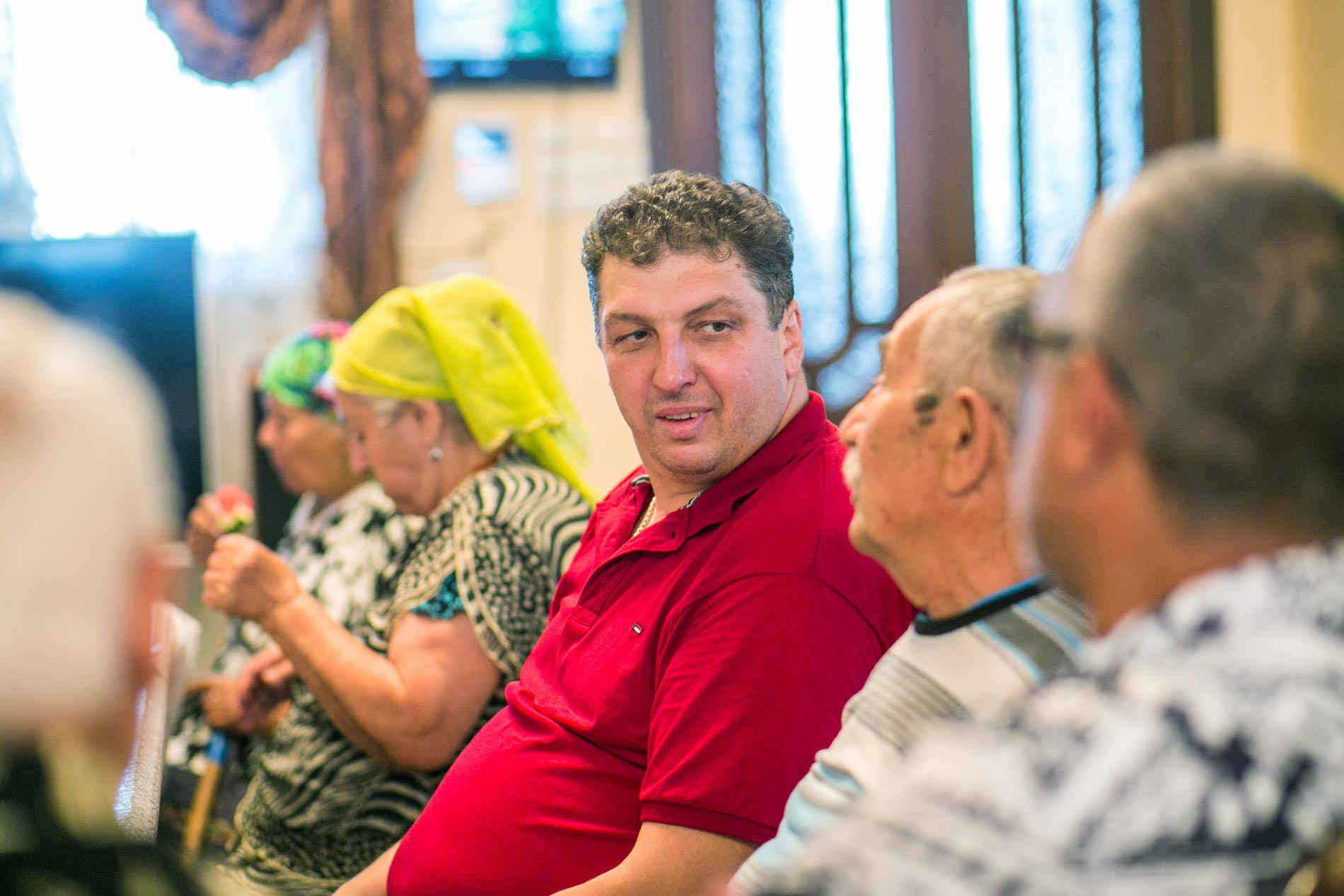
Volodymyr explains the biased attitude with a fact that society doesn’t do educational work, and there was a time this stereotyping was supported by school textbooks:
— I remember that in 2008 or 2009 there was a textbook: how to behave in school for children, 4th or 5th year. And there was a picture of Gipsy woman ringing the doorbell saying: “Do not open the door to strangers.” There were a Romany identity and clothing. A kid looks and thinks: “Oh, Gipsy – I am not allowed to let them in” because it is in a picture. Now we have achieved that there is nothing like that. But people still have such thoughts. And when you do a hundred of good things, but once a bad one – immediately that hundred of good things is forgotten.
There is a problem of the poor Roma, which is interconnected with the education and development of entrepreneurship. However, Roma in Zolotonosha try to support each other and do not divide people into the poor and the rich:
— We don’t have such thing as if he is poorer, we are not friends with him, or he is a bad person. We are all equal.
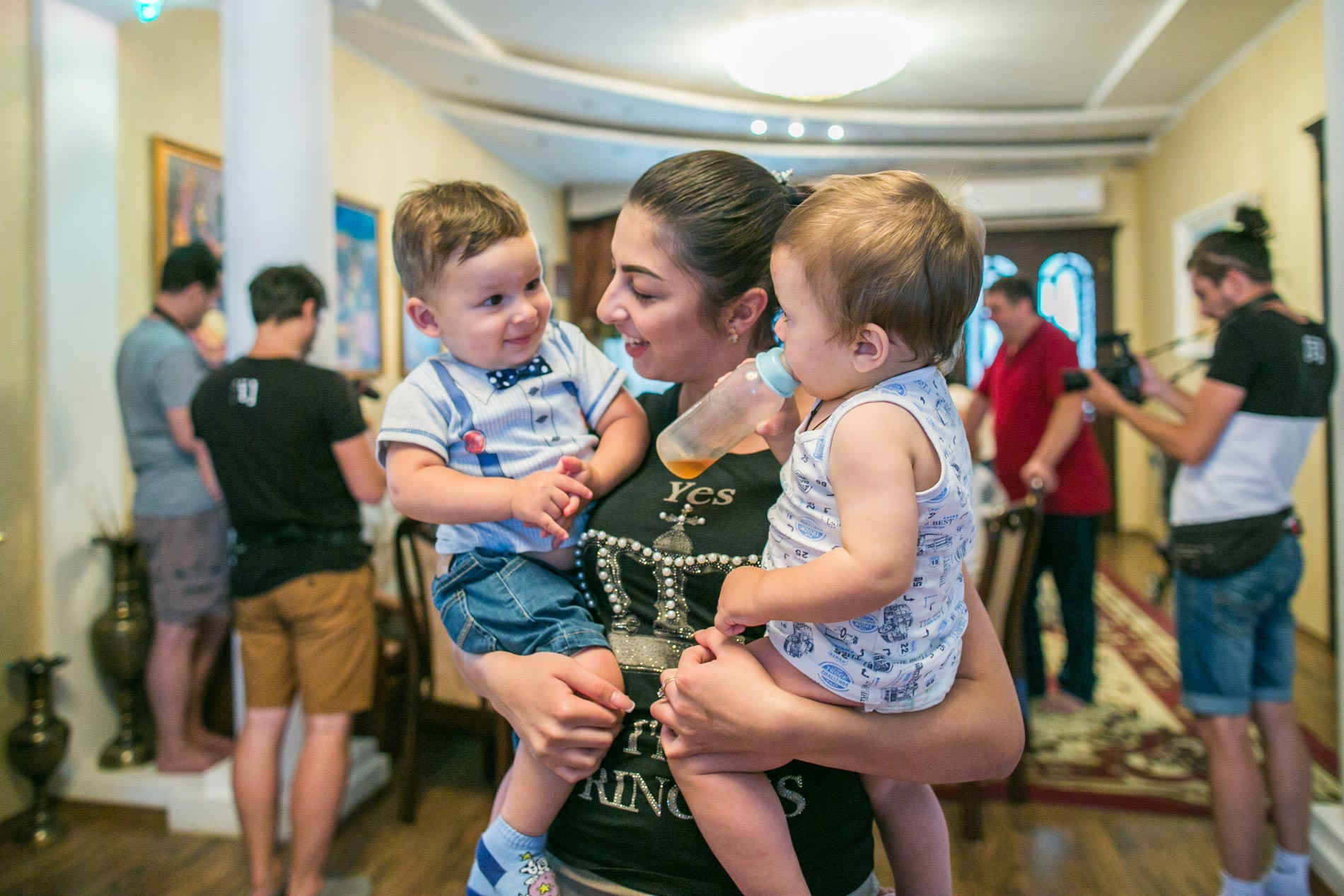
The Roma here strives to be equal with all Ukrainians at all levels. Opening up the doors of our Centre and houses for the others we expect the same attitude from the other side, and we try to our best for this.
— The aim is to socialize the Roma in the Ukrainian society, and like I consider myself the Ukrainian of the Roma origin – the same way the others should be able to do so. It is like Ukrainian from Western Ukraine, from Eastern – and we all are Ukrainians, we need to build the state, the house for ourselves and not be fooled by these provocations

